
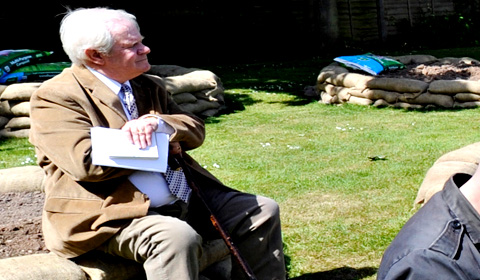
Charwood Borough Council – Arts Conservative councillor for Loughborough Nanpantan, elected member and Charnwood Borough Council Cabinet Lead Member on Culture & Leisure, Community Cohesion & Equalities, and also Chairs the County Council Community Overview & Scrutiny Committee.
Workshop Presentation:
City Plan for Gardens in Loughborough
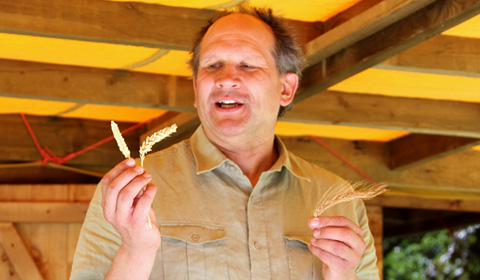
Department of Biology, University of Leicester
Pat Heslop-Harrison is Professor of Molecular Cytogenetics and Plant Cell Biology in the University of Leicester. His research interests centre around the physical and molecular organization of plant genomes, and the application of results to the improvement of crop plants, particularly those of relevance to developing countries. Work on the nature, evolution, organization, modification and function of genes and repetitive DNA sequences is leading to a better understanding of plant diversity, gene behaviour and strategies for plant breeding through learning about what is in the genome, how it is modified, and how it has evolved over long periods (speciation) and short timescales (plant breeding). Much of his work is collaborative involving institutes and Universities in the Americas, Asia, Africa and Australasia as well as Europe, and he is involved with training of scientists from many countries. He is also involved with policy issues including study of mechanisms of research exploitation and was a member of the UK Government’s GM Science Review Panel
Workshop Presentation:
DIY Genetics + Plant Domestication: Wild and Cultivated Species
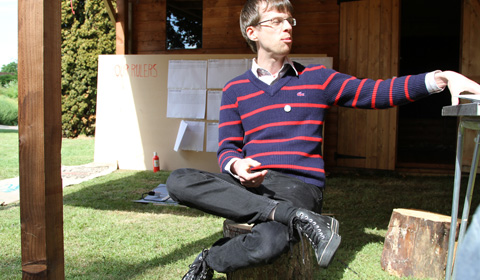
Leicester Friends of the Earth Leicester
Tim is the Network Developer for Friends of the Earth in the Midlands, working with local activists on recruitment, fundraising and campaigning. He is based in offices in Birmingham and Nottingham
Workshop Presentation:
Friends of the Earth:
Current work on food, particularly the impacts of our global food production system on biodiversity and climate change, and why they support new, local and sustainable forms of growing and farming
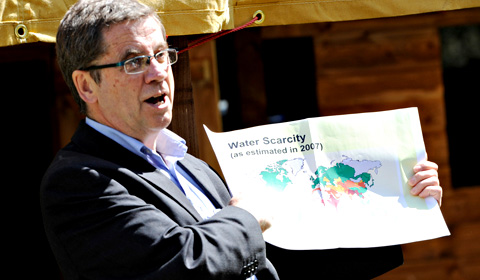
Director of Water, Engineering and Development Centre, Loughborough University Andrew Cotton is Director of the Water, Engineering and Development Centre (WEDC) at Loughborough University. He has 30 years experience of working in water and sanitation for development and advises international agencies, Governments and NGOs. In 2008 Andrew was Special Adviser to the House of Commons Select Committee enquiry on water for development; he has worked extensively in South Asia and sub Saharan Africa.
Workshop Presentation:
Crisis? What crisis? By Andrew Cotton
The world has finite water resources that are coming under dramatically increasing pressure. In this talk Andrew will look at water use and sustainability from the point of view of the urban and rural populations in developing countries. There are massive problems facing the people and governments of some of the poorest countries on earth – not only in food production but in the also most basic human needs: 2.6 BILLION people do not have access to sanitation worldwide. The needs of sustainable food production, industrial development and water for people have to be carefully balanced – approaches that make use of local knowledge and practices are ever more important in striving for more sustainable water use and a more secure future for all.
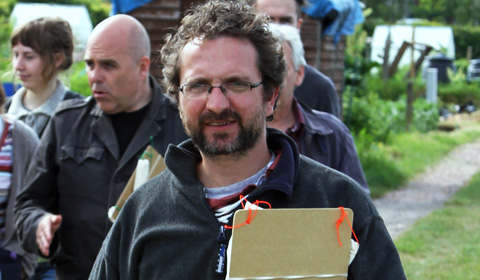
Lecturer in Landscape History, University of Leicester
Richard Jones is a Lecturer in Landscape History based in the Centre for English Local History at the University of Leicester. He is the author of 'Medieval Villages in an English Landscape: Beginnings and Ends' (2006), and co-editor of 'Deserted Villages Revisited' published this year. He is currently finishing a book on Thorp place-names and is writing/editing two books that will appear in 2012, 'The Medieval Natural World' and 'Manure: Historical, Archaeological and Ethnographic Perspectives'. Two articles on medieval manure have already appeared: 'Signatures in the soil: the use of pottery in manure scatters in the identification of medieval arable farming regimes' and 'Manure and the medieval social order'.
Workshop Presentation:
Medieval Manure:
In a world lacking geochemical understanding how was manure applied and how were its effects explained? Can we identify different manures and who was using them? What social and ideological messages did manure carry? How was manure represented in medieval art? How did manure help to define the medieval peasant and how did they use manure to write messages in the landscape?
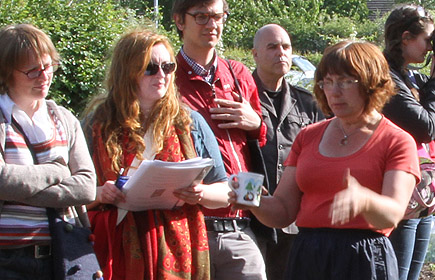
Voluntary Action Charnwood Gardening Project
Workshop Presentation:
Companion Planting in Loughborough
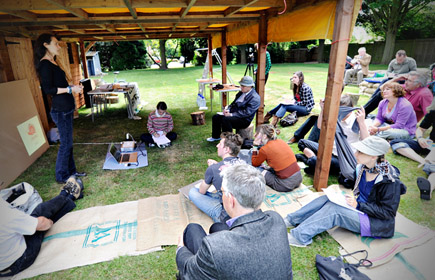
Department of Social Sciences, Loughborough University
Sarah Pink studied Social Anthropology at the University of Kent and Visual Anthropology at the University of Manchester. Her research, mainly in Spain and the UK, has been about gender, media, performance and the senses in public and domestic spaces. She is currently doing research about “Slow Cities” in the UK and writing a book called Doing Sensory Ethnography.
Workshop Presentation:
Slow Living
Slow living involves the conscious negotiation of the different temporalities which make up our everyday lives.